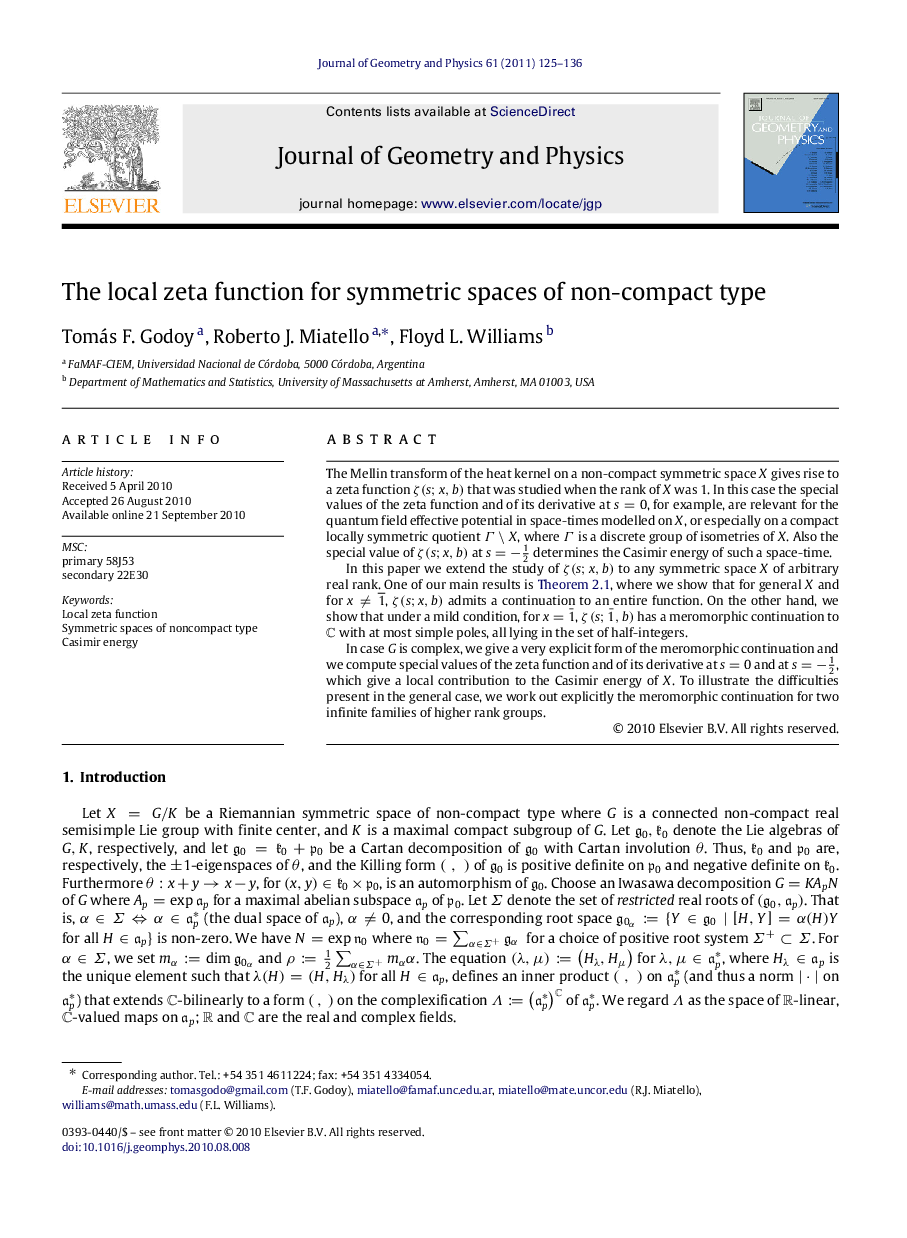| Article ID | Journal | Published Year | Pages | File Type |
|---|---|---|---|---|
| 1896622 | Journal of Geometry and Physics | 2011 | 12 Pages |
The Mellin transform of the heat kernel on a non-compact symmetric space XX gives rise to a zeta function ζ(s;x,b)ζ(s;x,b) that was studied when the rank of XX was 11. In this case the special values of the zeta function and of its derivative at s=0s=0, for example, are relevant for the quantum field effective potential in space-times modelled on XX, or especially on a compact locally symmetric quotient Γ∖XΓ∖X, where ΓΓ is a discrete group of isometries of XX. Also the special value of ζ(s;x,b)ζ(s;x,b) at s=−12 determines the Casimir energy of such a space-time.In this paper we extend the study of ζ(s;x,b)ζ(s;x,b) to any symmetric space XX of arbitrary real rank. One of our main results is Theorem 2.1, where we show that for general XX and for x≠1¯, ζ(s;x,b)ζ(s;x,b) admits a continuation to an entire function. On the other hand, we show that under a mild condition, for x=1̄, ζ(s;1̄,b) has a meromorphic continuation to CC with at most simple poles, all lying in the set of half-integers.In case GG is complex, we give a very explicit form of the meromorphic continuation and we compute special values of the zeta function and of its derivative at s=0s=0 and at s=−12, which give a local contribution to the Casimir energy of XX. To illustrate the difficulties present in the general case, we work out explicitly the meromorphic continuation for two infinite families of higher rank groups.
